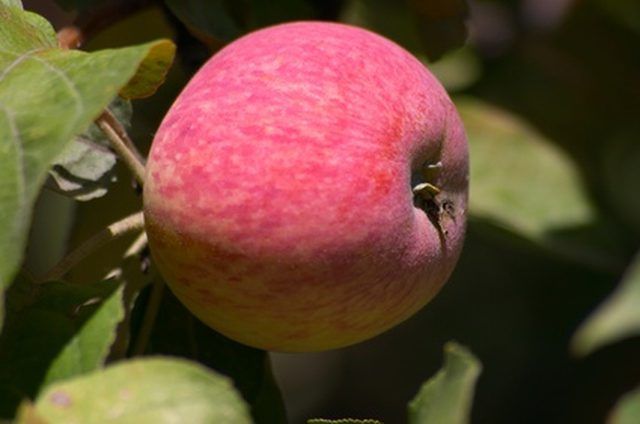Bulbs
Flower Basics
Flower Beds & Specialty Gardens
Flower Garden
Garden Furniture
Garden Gnomes
Garden Seeds
Garden Sheds
Garden Statues
Garden Tools & Supplies
Gardening Basics
Green & Organic
Groundcovers & Vines
Growing Annuals
Growing Basil
Growing Beans
Growing Berries
Growing Blueberries
Growing Cactus
Growing Corn
Growing Cotton
Growing Edibles
Growing Flowers
Growing Garlic
Growing Grapes
Growing Grass
Growing Herbs
Growing Jasmine
Growing Mint
Growing Mushrooms
Orchids
Growing Peanuts
Growing Perennials
Growing Plants
Growing Rosemary
Growing Roses
Growing Strawberries
Growing Sunflowers
Growing Thyme
Growing Tomatoes
Growing Tulips
Growing Vegetables
Herb Basics
Herb Garden
Indoor Growing
Landscaping Basics
Landscaping Patios
Landscaping Plants
Landscaping Shrubs
Landscaping Trees
Landscaping Walks & Pathways
Lawn Basics
Lawn Maintenance
Lawn Mowers
Lawn Ornaments
Lawn Planting
Lawn Tools
Outdoor Growing
Overall Landscape Planning
Pests, Weeds & Problems
Plant Basics
Rock Garden
Rose Garden
Shrubs
Soil
Specialty Gardens
Trees
Vegetable Garden
Yard Maintenance
How to Grow Apple Trees in Michigan
How to Grow Apple Trees in Michigan. Apple trees can live for 60 years or more, yielding up to 100 lbs. of apples in a single growing season. Apple trees prefer planting in the sunny, well-drained soils of USDA hardiness zones 4 through 9, where they will begin to bear fruit within the first three to four years of planting. If you live in Michigan,...

Apple trees can live for 60 years or more, yielding up to 100 lbs. of apples in a single growing season. Apple trees prefer planting in the sunny, well-drained soils of USDA hardiness zones 4 through 9, where they will begin to bear fruit within the first three to four years of planting. If you live in Michigan, you can grow apple trees in your backyard landscape, provided you live in an area where the winter temperatures do not drop below -30 degrees Fahrenheit.
Things You'll Need
Soil testing kit
Lime or peat moss
Pitchfork
Soaker hose
Mulch
Fertilizer
Choose a sunny location that contains well-drained soil with a pH between 6.5 and 7.0 in which to grow your apples. Soil alkalinity and acidity varies throughout Michigan, so test the soil with a soil testing kit if you do not know its pH.
Amend the soil with lime if the pH is below 6.5 or with peat moss for a soil with a pH above 7.0. Add either amendment according to label instructions, after breaking up large chunks of earth with a pitchfork.
Plant your Michigan apple trees in holes that measure twice the width of their root balls. Dig the holes to the same depth as the current nursery containers. Space the holes at least 35 feet apart to give the apple trees plenty of room for expansion.
Remove the apple trees from their nursery containers. Set one apple tree in the center of each hole. Make sure the graft union (transition point where the roots meet the trunk) is above the soil line. Backfill the holes and gently tamp the soil with your foot to remove air pockets.
Water the apple trees generously using a soaker hose. Apple trees require at least 1 inch of water per week to thrive. The yearly average rainfall in Michigan is between 33 and 36 inches, considerably less than the 50 percent necessary. Therefore, Michigan apple trees require supplemental watering, especially during dry periods.
Apply a 3- to 4-inch layer of mulch around the trees to protect the roots from the chilly, Michigan winters. A layer of straw or bark chips will also improve water retention and reduce weed growth.
Prune apple trees during the winter when the trees go dormant. Remove dead or damaged branches with a pruning saw or sharp pair of pruning shears. Dormancy is also a good time to remove any branches that grow inward toward the center of the tree.
Apply a nitrogen fertilizer to the soil around the apple trees once a year. Check the packaging label for allocation amounts and time frames.
Tips & Warnings
According to Apple Journal, the Gala, Jonagold, Golden Delicious, Northern Spy, Empire and Red Delicious are among the most commonly grown apples in Michigan.
Do not plant apple trees in zone 3 if you live in Michigan. The winter temperatures in this zone drop to -40 degrees Fahrenheit, which is not sustainable for apple trees. Zone 3 encompasses the areas of Marenisco, Cystal Falls and Wolverine.